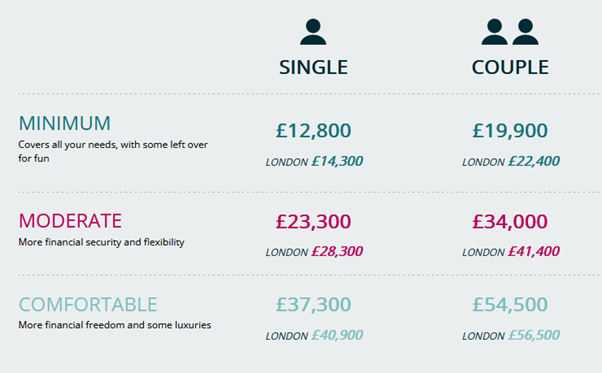August 29, 2023
Know your budget – understanding your spending today to prepare for tomorrow
Home / Know your budget �...
Understanding your current monthly budget can give you a valuable insight into how much you are likely to need in the years to come. If you have a comfortable lifestyle now, you’re not likely to want a minimum lifestyle in retirement.
Please be aware the below blog is older than 12 months, therefore the information may not be relevant or up to date.
As the kids start to get ready to go back to school and we all start to wonder at the costs of their new uniforms, books and tuition fees, thoughts of retirement are a long way off. But it made me think, how many of us are so caught up in the financial demands of the present that we haven’t given much thought to how much we might need to live on in the future?

Understanding your current monthly budget can give you a valuable insight into how much you are likely to need in the years to come. If you have a comfortable lifestyle now, you’re not likely to want a minimum lifestyle in retirement.
Here’s where the Pension & Lifetime Savings Associations’ Retirement Living Standards comes in. The Retirement Living Standards have been designed to highlight what life in retirement could look like at three different levels as shown below.

It’s generally accepted that you’ll require less per month during retirement as your mortgage will (hopefully) be paid by then. But it’s still sensible to get a good basic understanding of current spending habits as it provides a baseline for estimating how much income you'll require during retirement and allow you to prepare accordingly. For context, it’s estimated that for a couple to achieve a moderate standard retirement, both parties will need a fund size of approx. £121,000* alongside the state pension allowance.
Once you’ve spent some time analysing your average monthly spend you will be able to:
- See where you can cut back. If you're spending more than you need (and perhaps, more than you realised) on certain ‘non-necessary’ items, such as eating out or entertainment, you may want to scale it back a bit to free up some money to put towards your retirement savings
- Set realistic goals. Once you know how much you need to save each month, set realistic goals for yourself. Don't try to save too much too soon. Start with a small amount and gradually increase it over time: it’ll be easier and more achievable in the long term
- Plan for the unexpected. Try to start setting aside some money for the unexpected bills you may face in retirement, such as home repairs or helping the kids out!
Another advantage of knowing your current budget and expenditure is that it’s really useful to us, your friendly financial adviser. If you have these numbers available when we meet, we can use them to immediately start developing (or refining) a plan to help you achieve your desired level of retirement income.
By Daren Wallbank
THE VALUE OF PENSIONS AND THE INCOME THEY PRODUCE CAN FALL AS WELL AS RISE. YOU MAY GET BACK LESS THAN YOU INVESTED.
Approver Quilter Financial Services Limited & Quilter Mortgage Planning Limited. 23/08/2023
*https://www.retirementlivingstandards.org.uk/details – see DC pot size and income tax section
